Florida Insurance Industry
Thinking about becoming an insurance agent in Florida? Whether you’re just starting your career or looking for a change, this could be a rewarding path. With an abundance of opportunities, getting licensed in Florida opens doors to a stable and fulfilling profession. Exploring this field means understanding what makes it appealing and how to navigate the certification process. It may seem like a lot at first, but with the right direction, it’s completely doable and can lead to long-term success.
Florida is a great place to build a career in insurance, thanks to its large and diverse population and strong economic activity. And that’s before you add in the hurricanes, tornadoes, lightning, and flooding that affect the state regularly. Residents and businesses alike rely on insurance professionals for protection and peace of mind. With the right license, you’ll be prepared to step into this high-demand role and begin helping people safeguard what matters most. Here’s what makes it a smart move and how to get started.
Why Become an Insurance Agent in Florida?
Choosing a career as an insurance agent in Florida brings several attractive benefits. For one, there’s a wide range of opportunities because of the state’s growing population and active business climate. Agents can work in different areas based on what fits them best, whether that’s property, health, life, or other coverage types. This range means you can build a career around your strengths and interests.
Florida continually sees high demand for insurance agents. With plenty of people moving in and new businesses starting up all the time, there’s an ongoing need for insurance expertise. That creates stability and solid job potential for those entering the profession.
Available insurance license types in Florida include:
– Property and Casualty (220 license)
– Life, Health, and Variable Annuities
– Limited Surety (Bail Bonding) Agent
– Customer Representative (440 license)
Each license opens specific doors depending on who you want to serve and what services you want to offer. Whether you prefer to work with individual clients or advise small businesses, there’s a license that aligns with your goals. This flexibility adds to the career’s appeal and makes it easier to shape a path that fits your long-term ambitions.
Steps to Obtain a Florida Insurance License
If you’re ready to move forward, here are the steps to get your insurance license in Florida.
1. Understand the Basics: You must be at least 18 years old, legally reside in the U.S., and live in Florida. A clean background is also important since background checks are part of the process.
2. Pre-Licensing Education: Each license type has specific course requirements. You’ll need to complete these before taking the exam. The good news is that courses are available online or in person, depending on your schedule and learning style.
3. Apply for the State Exam: After completing your coursework, register for the state exam. This is done online, and you’ll be able to choose the date and location that works best for you.
4. Taking the Exam: Knowing what to expect will help you feel more confident. Review sample questions, use practice tests, and lean on study materials that target your specific license. That preparation goes a long way in helping you do well.
5. After the Exam: Once you pass, submit your license application to the Florida Department of Financial Services. Be ready to submit relevant documents and wrap up any remaining tasks before your license can be issued.
Every step moves you closer to becoming a licensed professional. With the right focus and tools, you’ll build a foundation to serve your clients effectively and start building your reputation in the insurance space.
Continuing Education and Maintaining Your License
Getting licensed is just the start. To keep your Florida insurance license active, you’ll need to complete continuing education (CE) at regular intervals. CE isn’t just a requirement. It’s how you stay sharp, keep up with law changes, and better serve your clients.
The specific CE requirements depend on the type of license you hold. For example, if you have a 220 license for property and casualty, you’ll have to complete a certain number of hours in specialist topics, ethics, and regulatory updates.
Most CE courses are offered online, making it easier to work them into your schedule. That’s especially helpful if you’re already busy managing accounts or meeting with clients.
To stay on top of your CE, follow this checklist:
– Write down your license renewal deadlines as soon as you get licensed
– Track the number of courses and hours needed for your license type
– Choose courses that are approved by the state and meet all requirements
– Finish your hours well in advance to avoid late penalties
– Keep a record of all completed courses for easy reference
Think of continuing education like regular maintenance on a trusted tool. It keeps your knowledge current and your license valid so you can keep doing what you do best.
Advancing Your Career as an Insurance Agent
Once you’ve earned your license and start building experience, you can set your sights on growth. Long-term success in insurance comes from staying active in your development and plugging into the larger industry.
The first step is knowing what direction excites you. Maybe you want to become a specialist in a tough coverage area like coastal property or health policies. Maybe you see yourself managing a team or launching your own agency. No matter your end goal, continued learning and networking will move you closer.
Here are a few ways to move forward:
– Pick a specialty that fills a local need and build your reputation there
– Join state or national professional groups to stay connected and informed
– Be active in your community through local events or business meetups
– Keep in touch with current and past clients to stay top of mind
– Once you feel confident, apply for licenses in other states to grow your territory
One Florida-based agent shared how focusing on high-risk auto insurance in his area helped him become the go-to name within two years. He credited his growth to consistent learning and showing up at local business events. That approach can work in almost any niche.
Performance in this field improves as you get experience, but it really shines when you make development a priority.
Your Path to Success Starts Here
Starting an insurance career in Florida comes with plenty of possibility. There’s a steady demand for agents, a variety of licenses to choose from, and clear steps to follow. As you move forward step-by-step—whether it’s taking pre-licensing courses or planning for CE—you’ll gain confidence and see progress.
If you’re someone who wants a career that blends meaningful service with flexibility and growth, this could be a great match. Insurance agents help people make good decisions. You’re not just answering questions. You’re giving people peace of mind.
Earning and keeping your Florida insurance license is your ticket to this kind of career. With the right preparation, education, and commitment to growth, you can build something rewarding and reliable for the long haul.
Whether you’re preparing for your first exam or looking to expand into a new license type, All-Lines Training offers flexible courses that can help you meet the requirements for your insurance license in Florida at a pace that fits your schedule and goals.



